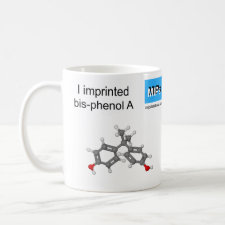
Authors: Joshi VP, Karmalkar RN, Kulkarni MG, Mashelkar RA
Article Title: Effect of solvents on selectivity in separation using molecularly imprinted adsorbents: Separation of phenol and bisphenol A.
Publication date: 1999
Journal: Industrial & Engineering Chemistry Research
Volume: 38
Issue: (11)
Page numbers: 4417-4423.
DOI: 10.1021/ie990331o
Abstract: Molecularly imprinted polymers (MIPs) are finding diverse applications in areas such as racemic resolution, sensors, catalysts, etc. We report separation of phenol and bisphenol A using MIPs especially with reference to the role of the solvent in deciding the selectivity of separation. The separation efficacy for MIPs depends not only on the solvent but also on the conditions (viz., equilibrium vs nonequilibrium) under which the selectivity is determined. The sorption capacity is severely affected as a result of limitations of accessibility of the imprint site. Our work gives an insight into the subtle interactions among the polymer, sorbate, and the solvent. Our results are of value in designing separation systems with greater efficacy



Join the Society for Molecular Imprinting

New items RSS feed
Sign-up for e-mail updates:
Choose between receiving an occasional newsletter or more frequent e-mail alerts.
Click here to go to the sign-up page.
Is your name elemental or peptidic? Enter your name and find out by clicking either of the buttons below!
Other products you may like:
 MIPdatabase
MIPdatabase









